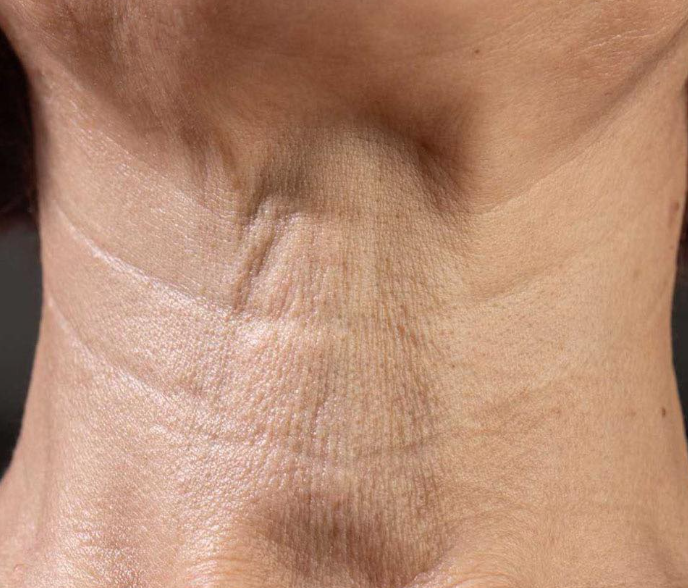As we age, one noticeable change is neck sagging, often called “turkey neck.” This common concern can affect self-esteem and is caused by a mix of anatomical, environmental, and lifestyle factors.
The neck’s delicate structure—composed of the platysma muscle, thin skin, and connective tissue—makes it especially prone to aging. Over time, collagen and elastin levels decline, leading to reduced skin firmness and elasticity.
Aging naturally slows down moisture retention and protein production in the skin. Fat pads beneath the neck may also shift, contributing to a sagging or hollow appearance. Sun exposure accelerates this process; UV rays damage collagen and elastin, making daily SPF use essential for prevention.
Genetics also play a key role. Some people may experience early sagging due to inherited traits, but proactive skincare and healthy habits can help delay these effects. Weight fluctuations—especially rapid loss—can also cause sagging by stretching and weakening the skin.
